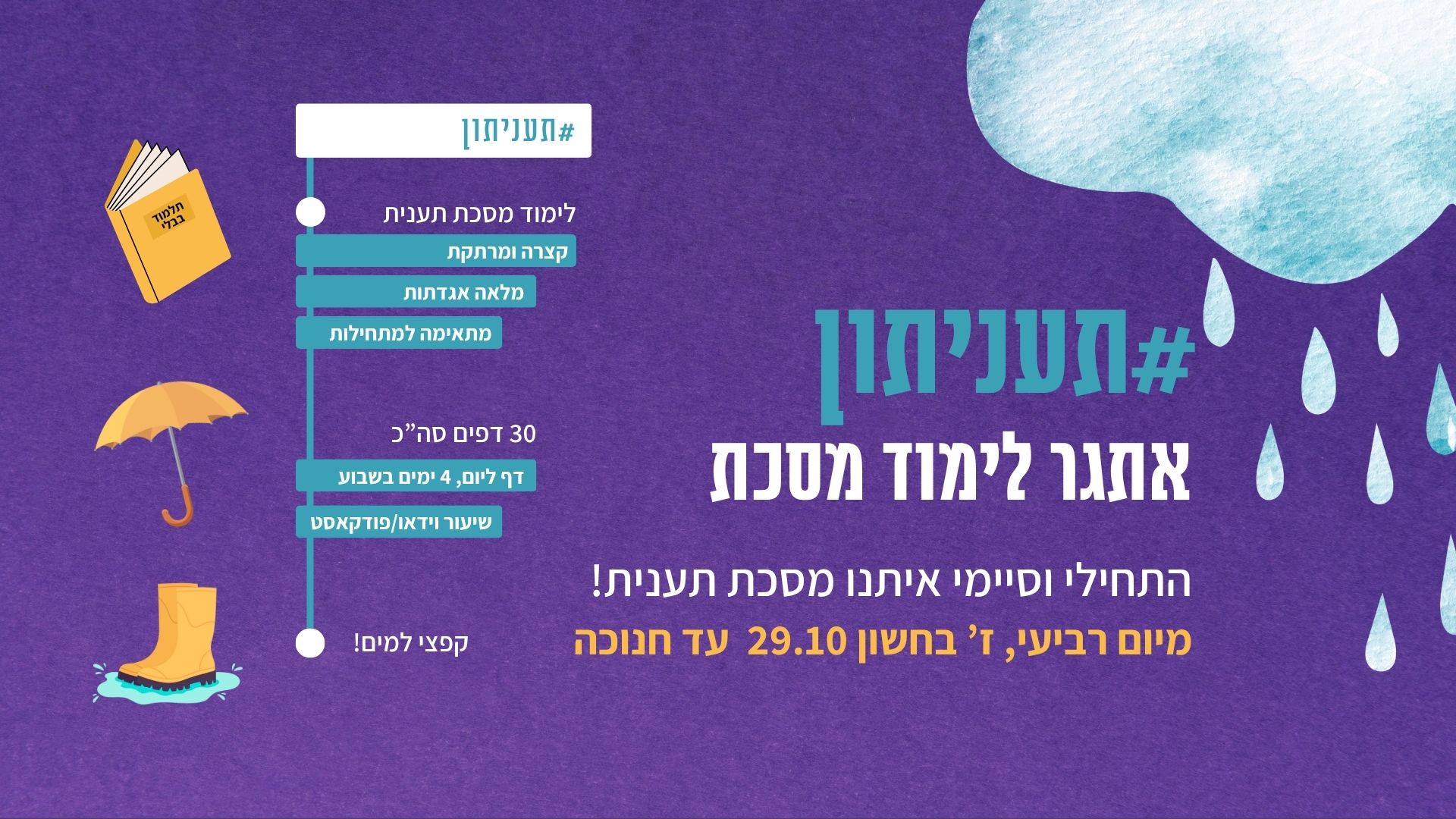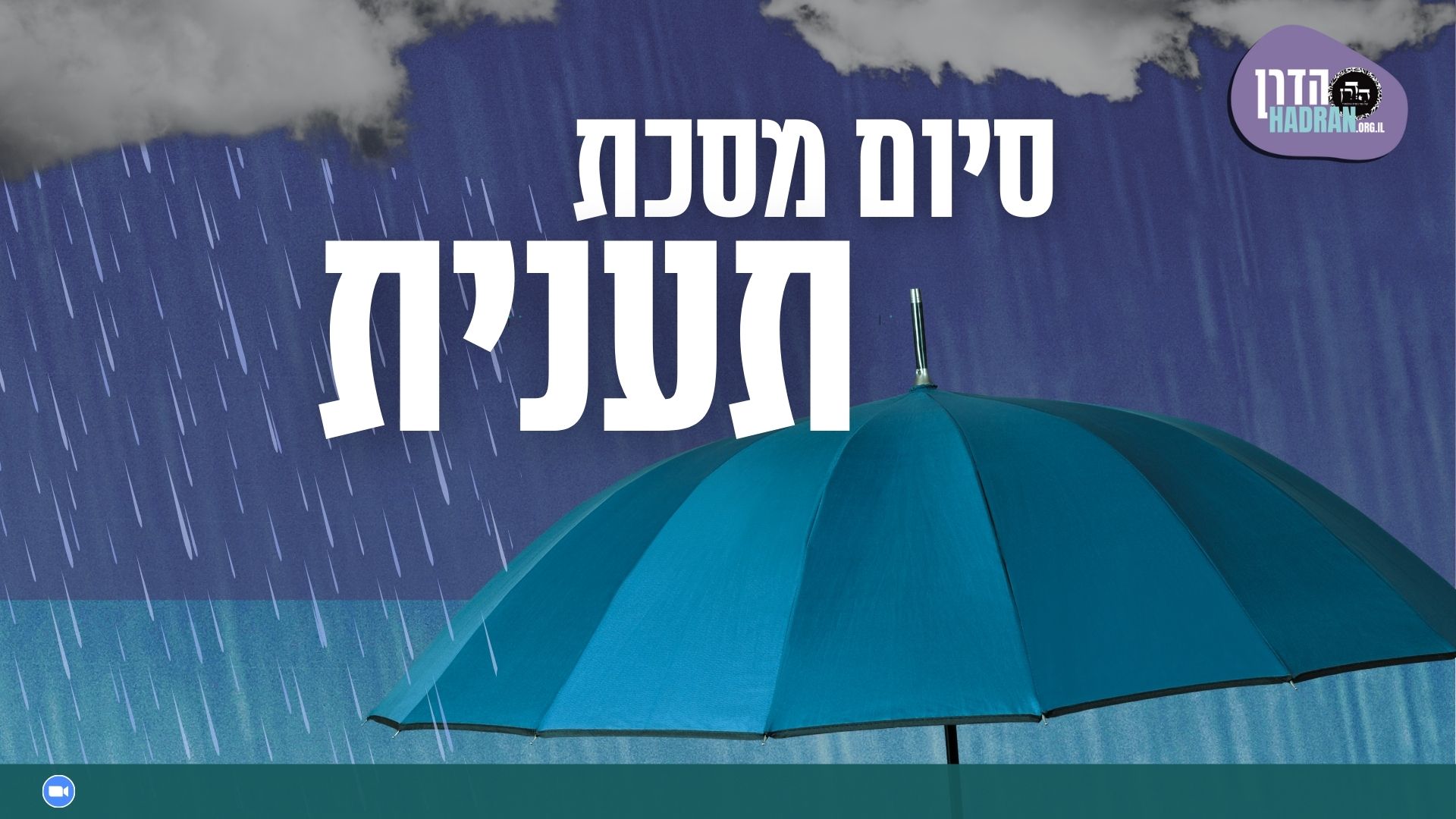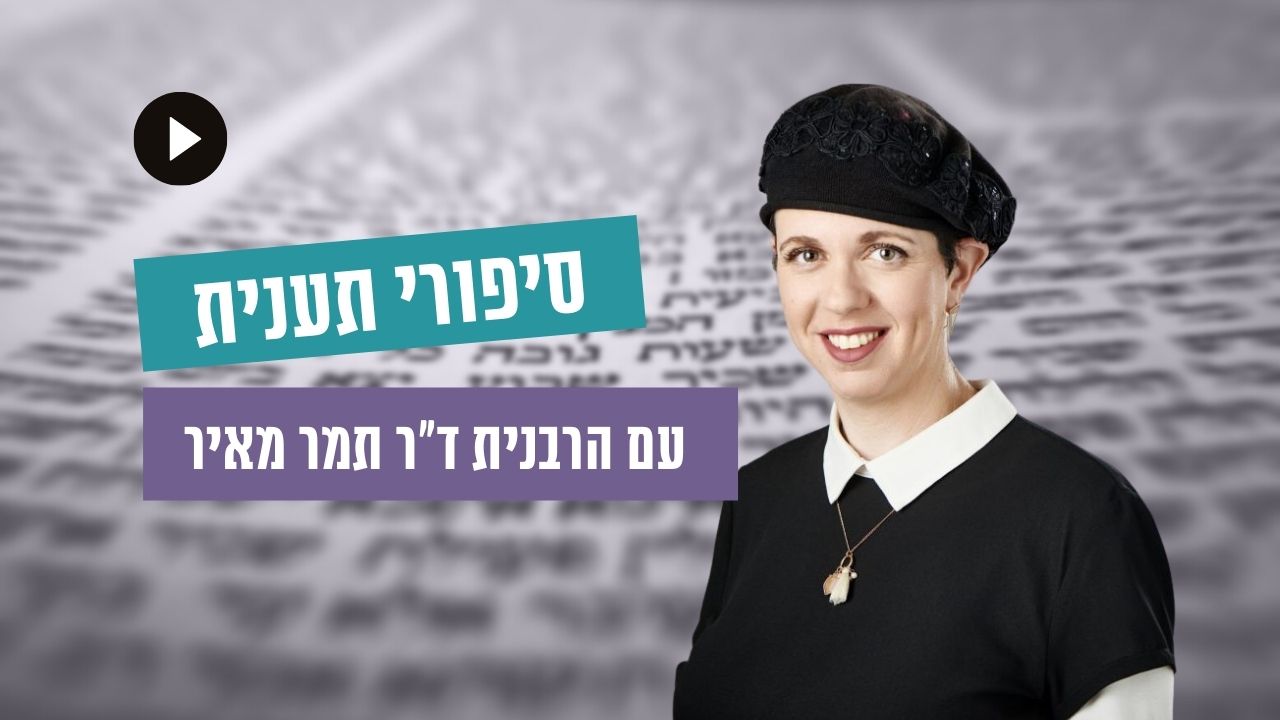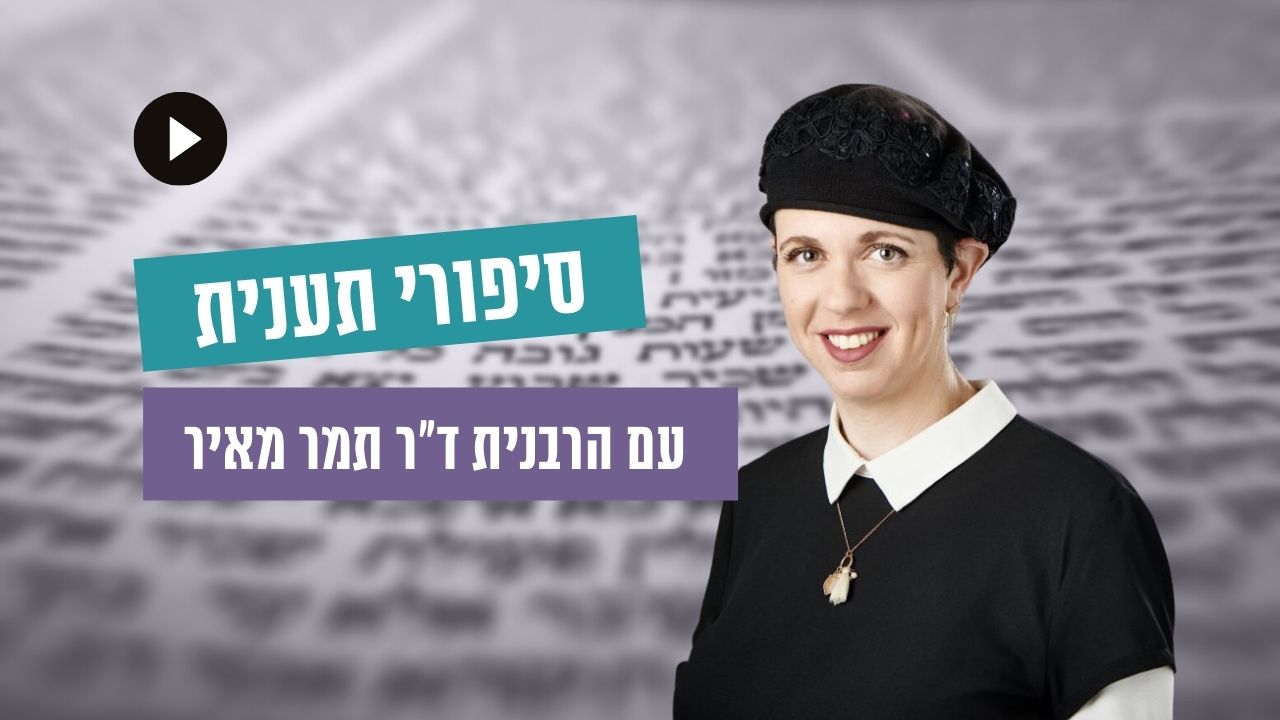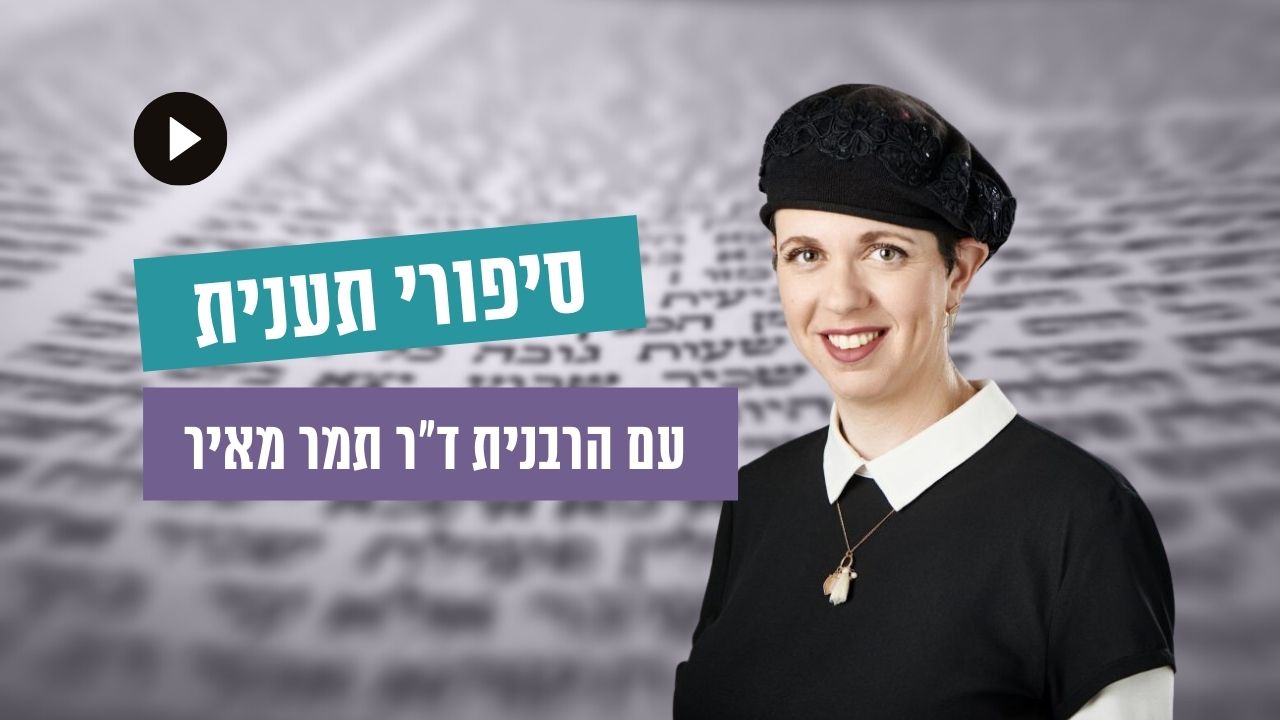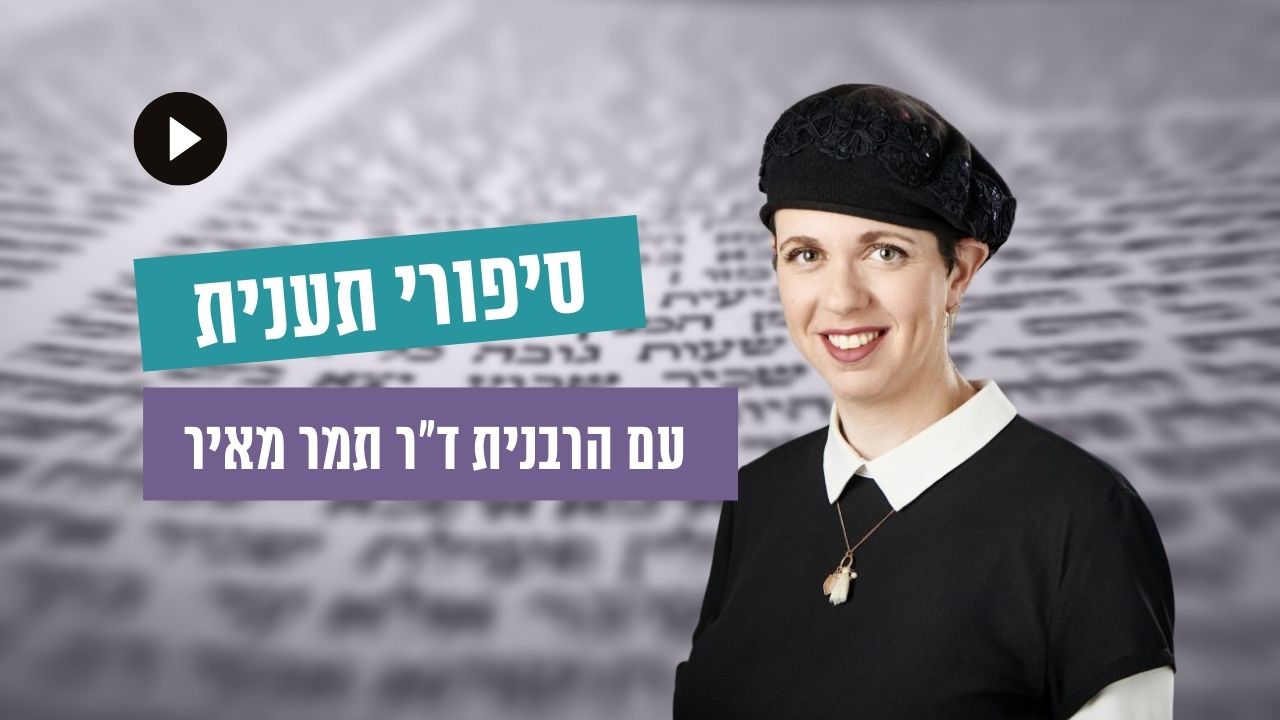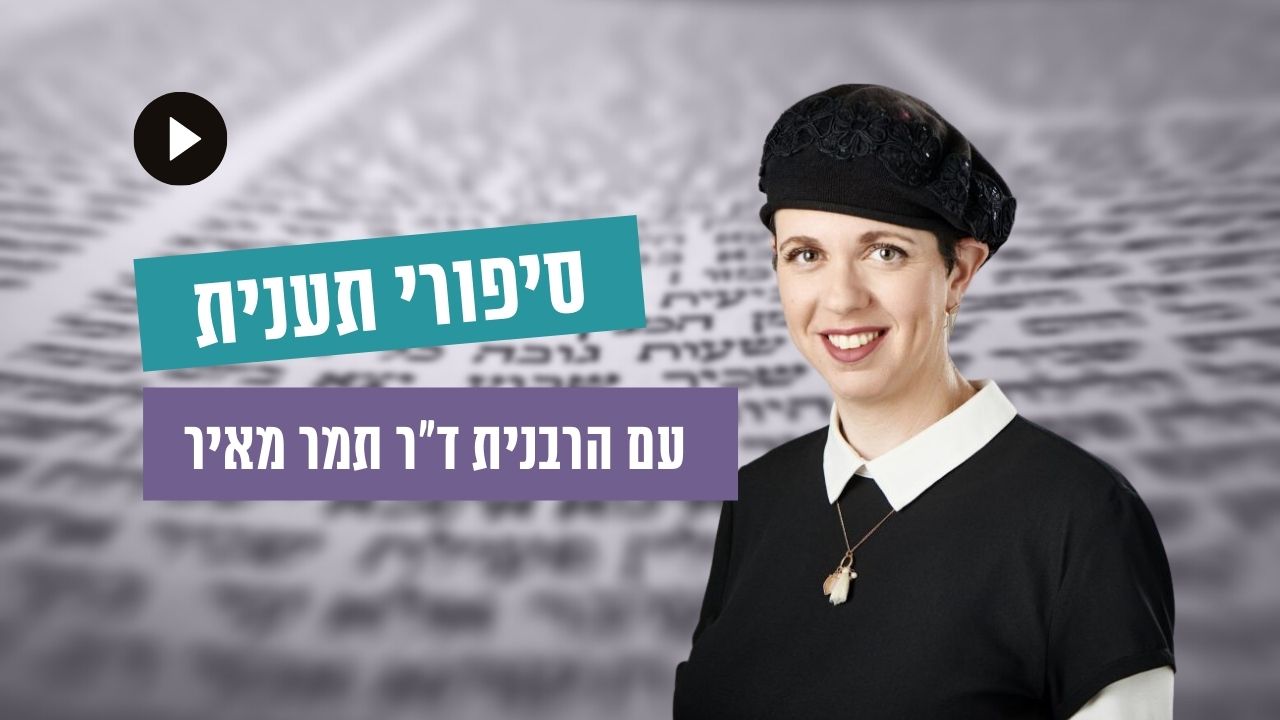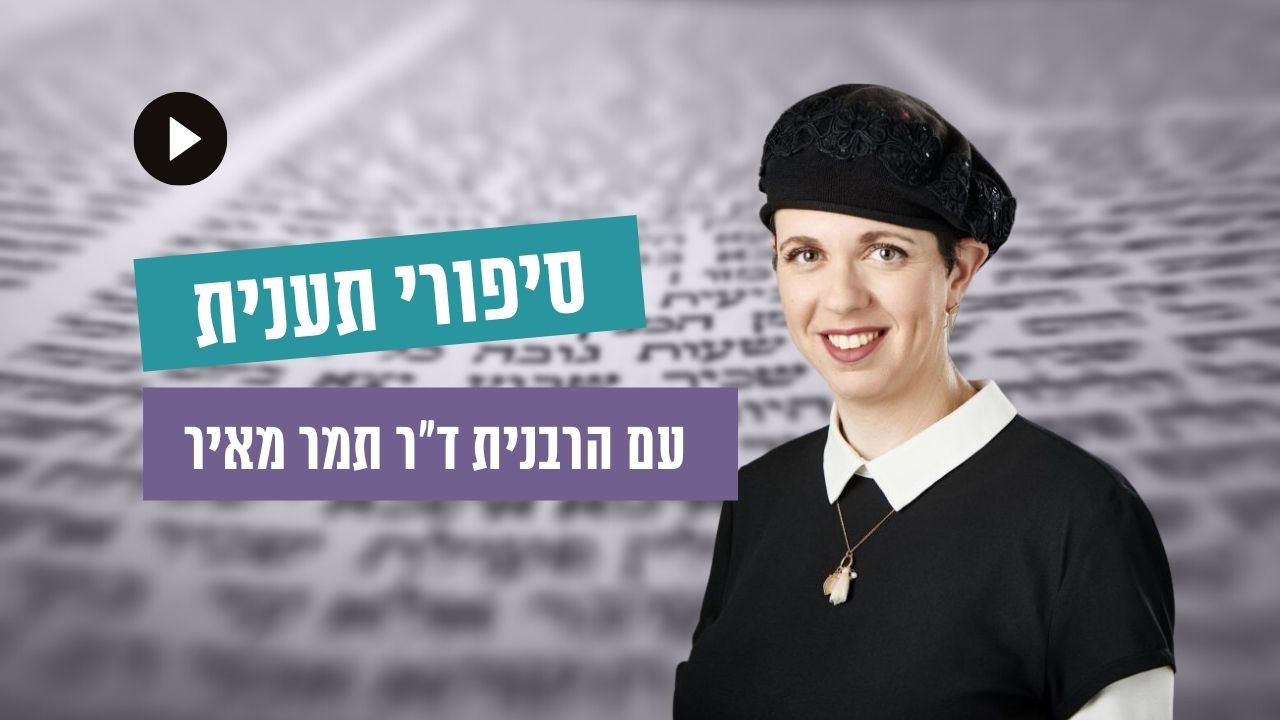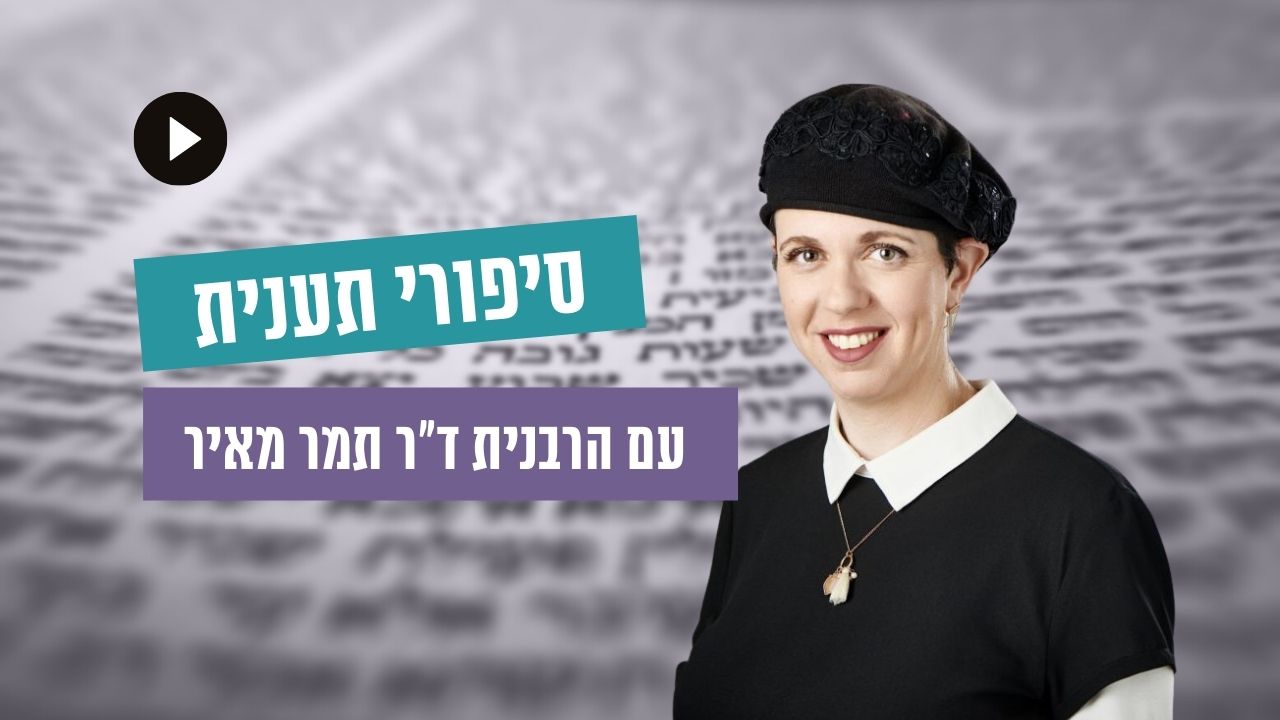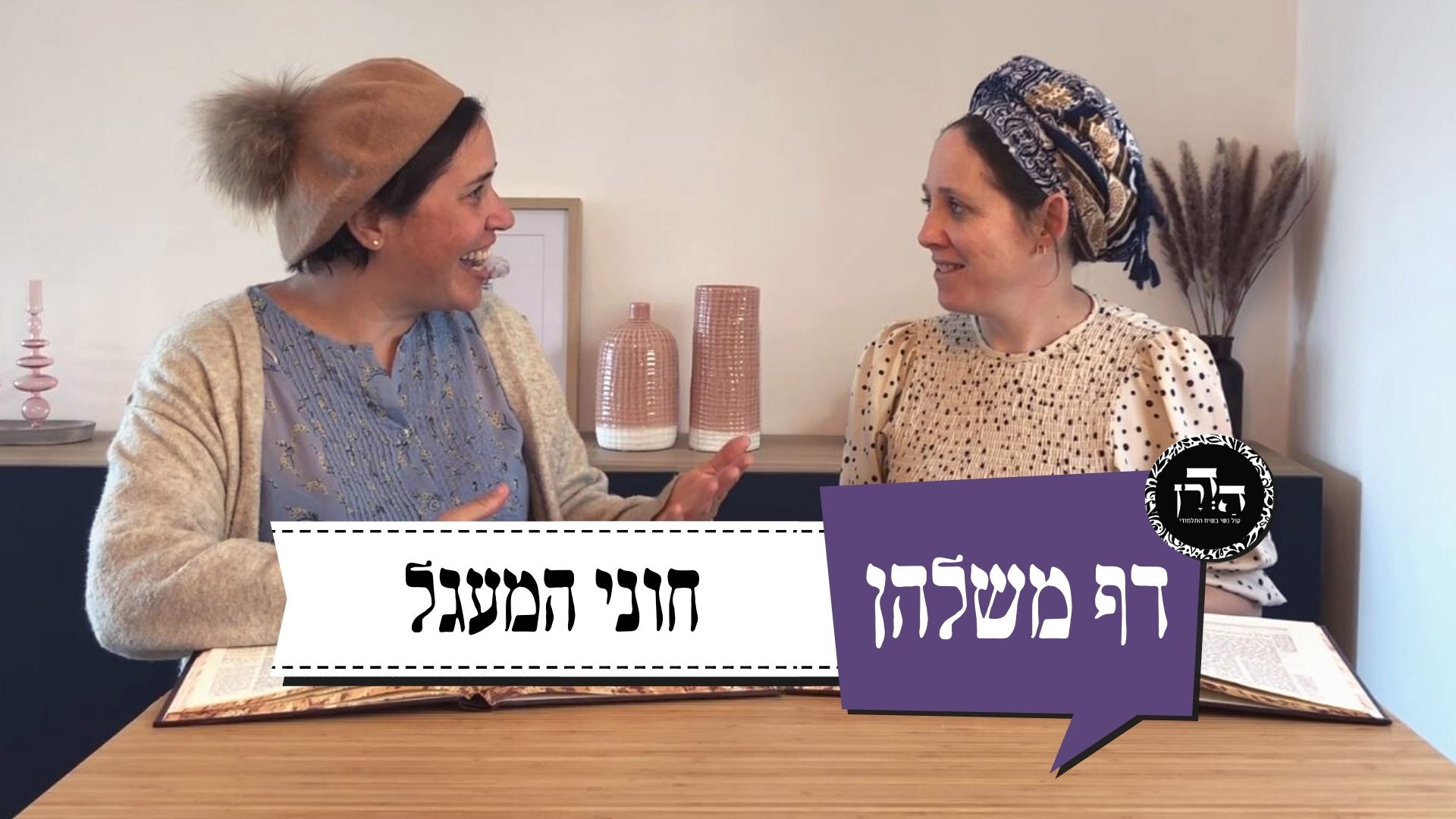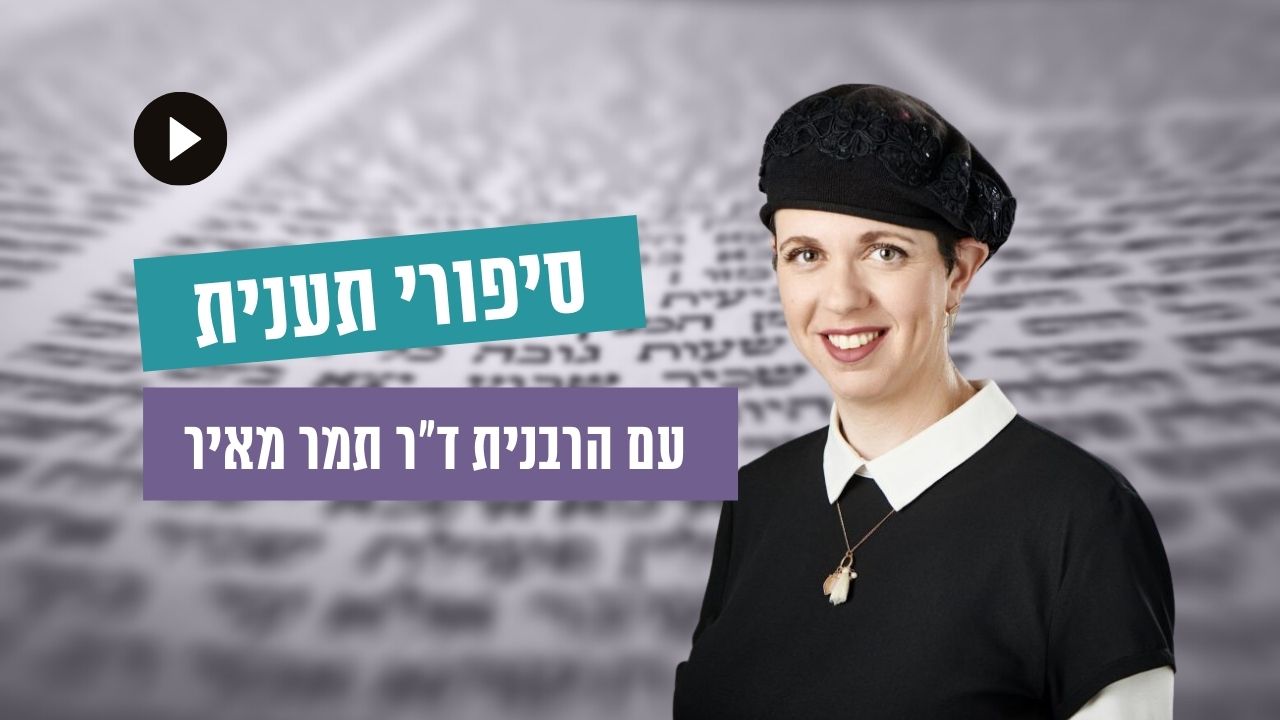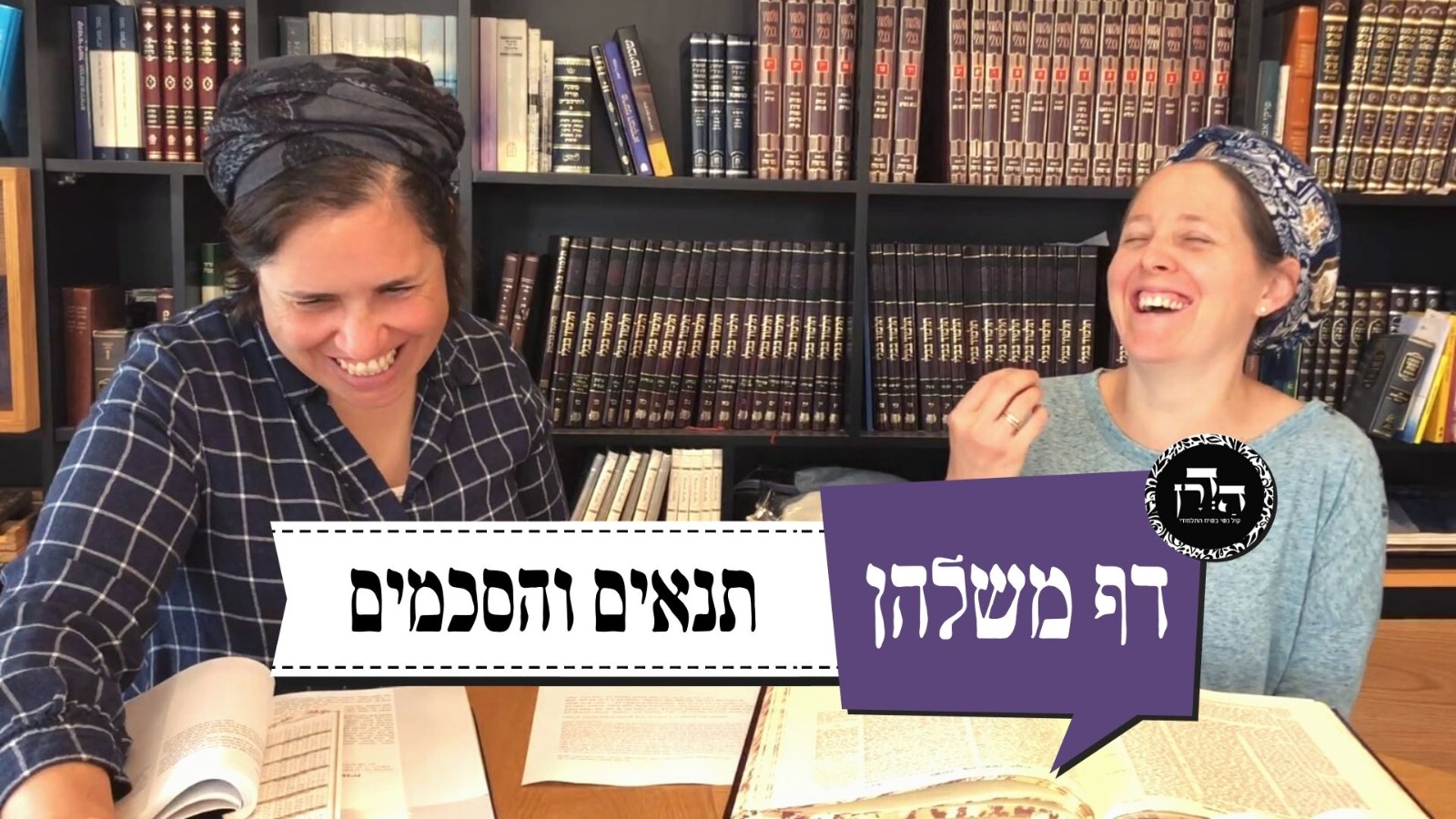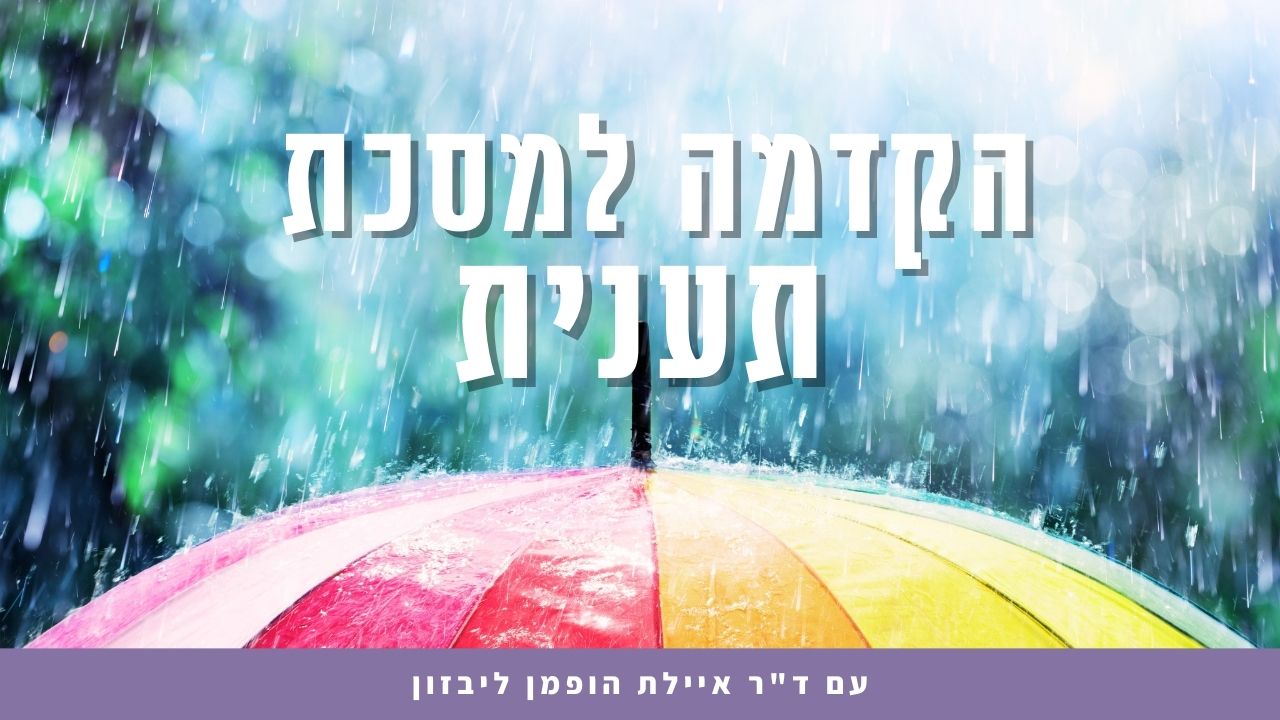רבי יוחנן מנהל דיון עם אחיינו, בנו של ריש לקיש, על חשיבותה של נתינת מעשרות/צדקה ועל כך שנאמר שמי שיתעשר, יתעשר. רבי יוחנן אומר לו שאפשר אפילו לנסות את ה’ בעניין זה, למרות שבאופן כללי אסור לנסות את ה’. עוד אמר רבי יוחנן שהקב”ה מביא גשם ליחידים, אבל פרנסה יביא רק לקהילה. מעלים קושי נגדו מברייתא המדברת על הבאר שהובאה בזכותה של מרים, הענן בזכות אהרן והמן בזכות משה. מכיוון שהמן הוא פרנסה, איך הוא הובא בזכותו של יחיד? כאשר רבא מת ורב פפא לקת את תפקידו, הוא היה רגיש לאלה שלא תמיד הסכימו עם דעותיו או העלו קושיות נגדו שלא תמיד ידע לענות עליהן. לפעמים הקב”ה מביא גשמים רק לבנאדם אחד, או רק למקום אחד בשדהו. כאשר מטפטף לפני הגשם או אחרי הגשם, על מה זה מעיד? כשהגיע עולא לבבל, הוא ראה את העננים מתנשאים, דקים מתחת לעבים, וזה סימן שהגשם יבוא. הוא אמר לכולם להכניס הכל פנימה כי הגשמים באים. כשלא ירד גשם, הוא אמר שהגשמים בבבל משקרים בדיוק כמו שהבבלים משקרים. עוד ביקר אותם על שלא למדו מספיק תורה כשיש להם שפע של תמרים טובים. הוכח שטעה לגבי זה, שכן התמרים שהוא אכל גרמו לו לשלשל. האם מי הגשמים מגיעים מהאוקיינוס או מהשמיים? זהו ויכוח בין רבי אליעזר לרבי יהושע.
רוצה להקדיש שיעור?
כלים
העמקה
רוצה להבין מה באמת קורה מתחת לפני השטח של הסוגיה?
שיעורים, פודקאסטים והרחבות של מיטב המורות שלנו יפתחו לך עוד זוויות וכיווני חשיבה.
חדשה בלימוד הגמרא?
זה הדף הראשון שלך? איזו התרגשות עצומה! יש לנו בדיוק את התכנים והכלים שיעזרו לך לעשות את הצעדים הראשונים ללמידה בקצב וברמה שלך, כך תוכלי להרגיש בנוח גם בתוך הסוגיות המורכבות ומאתגרות.
פסיפס הלומדות שלנו
גלי את קהילת הלומדות שלנו, מגוון נשים, רקעים וסיפורים. כולן חלק מתנועה ומסע מרגש ועוצמתי.
תענית ט
״עַשֵּׂר תְּעַשֵּׂר״ — עַשֵּׂר בִּשְׁבִיל שֶׁתִּתְעַשֵּׁר.
“A tithe shall you tithe [te’aser]” (Deuteronomy 14:22)? This phrase can be interpreted homiletically: Take a tithe [asser] so that you will become wealthy [titasher], in the merit of the mitzva.
אַשְׁכְּחֵיהּ רַבִּי יוֹחָנָן לְיָנוֹקָא דְּרֵישׁ לָקִישׁ, אֲמַר לֵיהּ: אִימָּא לִי פְּסוּקָיךְ! אֲמַר לֵיהּ: ״עַשֵּׂר תְּעַשֵּׂר״. אֲמַר לֵיהּ: וּמַאי ״עַשֵּׂר תְּעַשֵּׂר״? אֲמַר לֵיהּ: עַשֵּׂר בִּשְׁבִיל שֶׁתִּתְעַשֵּׁר, אֲמַר לֵיהּ: מְנָא לָךְ? אֲמַר לֵיהּ: זִיל נַסִּי.
Rabbi Yoḥanan found the young son of Reish Lakish. He said to the boy: Recite to me your verse, i.e., the verse you studied today in school. The boy said to him: “A tithe shall you tithe.” The boy further said to Rabbi Yoḥanan: But what is the meaning of this phrase: “A tithe shall you tithe”? Rabbi Yoḥanan said to him: The verse means: Take a tithe so that you will become wealthy. The boy said to Rabbi Yoḥanan: From where do you derive that this is so? Rabbi Yoḥanan said to him: Go and test it.
אֲמַר לֵיהּ: וּמִי שְׁרֵי לְנַסּוֹיֵיהּ לְהַקָּדוֹשׁ בָּרוּךְ הוּא? וְהָכְתִיב: ״לֹא תְנַסּוּ אֶת ה׳״! אֲמַר לֵיהּ, הָכִי אָמַר רַבִּי הוֹשַׁעְיָא: חוּץ מִזּוֹ, שֶׁנֶּאֱמַר: ״הָבִיאוּ אֶת כׇּל הַמַּעֲשֵׂר אֶל בֵּית הָאוֹצָר וִיהִי טֶרֶף בְּבֵיתִי וּבְחָנוּנִי נָא בָּזֹאת אָמַר ה׳ צְבָאוֹת אִם לֹא אֶפְתַּח לָכֶם אֵת אֲרֻבּוֹת הַשָּׁמַיִם וַהֲרִיקֹתִי לָכֶם בְּרָכָה עַד בְּלִי דָי״.
The boy said to him: And is it permitted to test the Holy One, Blessed be He? But isn’t it written: “You shall not test the Lord your God” (Deuteronomy 6:16)? Rabbi Yoḥanan said to the boy that Rabbi Hoshaya said as follows: It is prohibited to test God in any way, except in this case of tithes, as it is stated: “Bring the whole tithe into the storeroom, that there may be food in My house, and test Me now by this, said the Lord of hosts, if I will not open for you the windows of heaven, and pour out for you a blessing that there shall be more than sufficiency” (Malachi 3:10).
מַאי ״עַד בְּלִי דָי״? אָמַר רָמֵי בַּר חָמָא אָמַר רַב: עַד שֶׁיִּבְלוּ שִׂפְתוֹתֵיכֶם מִלּוֹמַר ״דַּי״. אֲמַר לֵיהּ: אִי הֲוָת מָטֵי הָתָם לְהַאי פְּסוּקָא, לָא הֲוֵית צְרִיכְנָא לָךְ וּלְהוֹשַׁעְיָא רַבָּךְ.
In relation to the above verse, the Gemara asks: What is the meaning of the phrase: “That there shall be more than sufficiency [ad beli dai]”? Rami bar Ḥama said that Rav said: It means that the abundance will be so great that your lips will be worn out [yivlu], similar to the word beli, from saying enough [dai]. Returning to the above incident, the Gemara adds that the boy said to Rabbi Yoḥanan: Your claim appears explicitly in a verse. If I had arrived there, at this verse, I would not have needed you or Hoshaya your teacher, as I could have understood it on my own.
וְתוּ אַשְׁכְּחֵיהּ רַבִּי יוֹחָנָן לְיָנוֹקֵיהּ דְּרֵישׁ לָקִישׁ דְּיָתֵיב וְאָמַר: ״אִוֶּלֶת אָדָם תְּסַלֵּף דַּרְכּוֹ וְעַל ה׳ יִזְעַף לִבּוֹ״.
The Gemara relates another story about the precociousness of this child. And furthermore, on a different occasion Rabbi Yoḥanan found the young son of Reish Lakish, when he was sitting and studying and he was reciting the verse: “The foolishness of man perverts his way, and his heart frets against the Lord” (Proverbs 19:3). This verse means that when someone sins and every manner of mishap befalls him, he complains and wonders why these things are happening to him.
יְתֵיב רַבִּי יוֹחָנָן וְקָא מַתְמַהּ. אָמַר: מִי אִיכָּא מִידֵּי דִּכְתִיבִי בִּכְתוּבֵי דְּלָא רְמִיזִי בְּאוֹרָיְיתָא? אָמַר לֵיהּ: אַטּוּ הָא מִי לָא רְמִיזִי, וְהָכְתִיב: ״וַיֵּצֵא לִבָּם וַיֶּחֶרְדוּ אִישׁ אֶל אָחִיו לֵאמֹר מַה זֹּאת עָשָׂה אֱלֹהִים לָנוּ״.
Rabbi Yoḥanan sat down and wondered aloud about this verse, saying: Is there anything that is written in the Writings that is not alluded to in the Torah at all? I cannot think of any hint of this idea in the Torah itself. The child said to him: Is that to say that this idea is really not alluded to in the Torah? But isn’t it written, with regard to Joseph’s brothers: “And their heart failed them and they turned trembling to one to another, saying: What is this that God has done to us?” (Genesis 42:28). This verse exemplifies the notion that when one sins and encounters troubles, he wonders why it is happening to him.
דַּל עֵינֵיהּ וַחֲזָא בֵּיהּ, אָתְיָא אִימֵּיהּ אַפֵּיקְתֵּיהּ, אֲמַרָה לֵיהּ: תָּא מִקַּמֵּיהּ, דְּלָא לֶיעְבַּד לָךְ כְּדַעֲבַד לַאֲבוּךְ.
Impressed by the youth’s wisdom, Rabbi Yoḥanan raised his eyes and stared at the boy. At this point, the boy’s mother came and took him away, saying to him: Come away from Rabbi Yoḥanan, so that he does not do to you as he did to your father. Reish Lakish, the boy’s father, died during a heated dispute with Rabbi Yoḥanan over a Torah matter. The argument ended with an offended look from Rabbi Yoḥanan which caused Reish Lakish’s death, and the boy’s mother was afraid that her son might suffer the same fate.
אָמַר רַבִּי יוֹחָנָן: מָטָר בִּשְׁבִיל יָחִיד, פַּרְנָסָה בִּשְׁבִיל רַבִּים. מָטָר בִּשְׁבִיל יָחִיד, דִּכְתִיב: ״יִפְתַּח ה׳ לְךָ אֶת אוֹצָרוֹ הַטּוֹב לָתֵת מְטַר אַרְצְךָ״. פַּרְנָסָה בִּשְׁבִיל רַבִּים, דִּכְתִיב: ״הִנְנִי מַמְטִיר לָכֶם לֶחֶם״.
§ After this brief digression, the Gemara turns to the fifth in the series of statements by Rabbi Yoḥanan concerning rain. Rabbi Yoḥanan said: Rain falls even for the sake of an individual, in response to the petition of a single person in need of rain, whereas a blessing of sustenance comes only for the sake of many. Rain falls even for the sake of an individual, as it is written: “The Lord will open for you His good treasure, the heavens, to give the rain of your land” (Deuteronomy 28:12). The fact that this verse is written in the second person singular demonstrates that rain can fall even for the sake of an individual. Rabbi Yoḥanan further proves that sustenance comes for the sake of many, as it is written: “Behold I will cause to rain bread from the heavens for you” (Exodus 16:4). Here, God is referring to the people in the plural form.
מֵיתִיבִי, רַבִּי יוֹסֵי בְּרַבִּי יְהוּדָה אוֹמֵר: שְׁלֹשָׁה פַּרְנָסִים טוֹבִים עָמְדוּ לְיִשְׂרָאֵל, אֵלּוּ הֵן: מֹשֶׁה וְאַהֲרֹן וּמִרְיָם. וְשָׁלֹשׁ מַתָּנוֹת טוֹבוֹת נִיתְּנוּ עַל יָדָם, וְאֵלּוּ הֵן: בְּאֵר, וְעָנָן, וּמָן. בְּאֵר — בִּזְכוּת מִרְיָם, עַמּוּד עָנָן — בִּזְכוּת אַהֲרֹן, מָן — בִּזְכוּת מֹשֶׁה. מֵתָה מִרְיָם — נִסְתַּלֵּק הַבְּאֵר, שֶׁנֶּאֱמַר: ״וַתָּמׇת שָׁם מִרְיָם״, וּכְתִיב בָּתְרֵיהּ: ״וְלֹא הָיָה מַיִם לָעֵדָה״, וְחָזְרָה בִּזְכוּת שְׁנֵיהֶן.
The Gemara raises an objection from a baraita: Rabbi Yosei, son of Rabbi Yehuda, says: Three good sustainers rose up for the Jewish people during the exodus from Egypt, and they are: Moses, Aaron and Miriam. And three good gifts were given from Heaven through their agency, and these are they: The well of water, the pillar of cloud, and the manna. He elaborates: The well was given to the Jewish people in the merit of Miriam; the pillar of cloud was in the merit of Aaron; and the manna in the merit of Moses. When Miriam died the well disappeared, as it is stated: “And Miriam died there” (Numbers 20:1), and it says thereafter in the next verse: “And there was no water for the congregation” (Numbers 20:2). But the well returned in the merit of both Moses and Aaron.
מֵת אַהֲרֹן — נִסְתַּלְּקוּ עַנְנֵי כָּבוֹד, שֶׁנֶּאֱמַר: ״וַיִּשְׁמַע הַכְּנַעֲנִי מֶלֶךְ עֲרָד״, מָה שְׁמוּעָה שָׁמַע? שָׁמַע שֶׁמֵּת אַהֲרֹן וְנִסְתַּלְּקוּ עַנְנֵי כָּבוֹד, וּכְסָבוּר נִיתְּנָה לוֹ רְשׁוּת לְהִלָּחֵם בְּיִשְׂרָאֵל. וְהַיְינוּ דִּכְתִיב: ״וַיִּרְאוּ כׇּל הָעֵדָה כִּי גָוַע אַהֲרֹן״.
When Aaron died the clouds of glory disappeared, as it is stated: “And the Canaanite, the king of Arad heard” (Numbers 33:40). What report did he hear? He heard that Aaron had died and the clouds of glory had disappeared, and he thought that the Jewish people were no longer protected by Heaven and therefore he had been given permission to go to war against the Jewish people. And this disappearance of the clouds is the meaning of that which is written: “And all the congregation saw that [ki] Aaron was dead” (Numbers 20:29).
אָמַר רַבִּי אֲבָהוּ: אַל תִּקְרֵי ״וַיִּרְאוּ״, אֶלָּא ״וַיִּירָאוּ״. כִּדְדָרֵישׁ רֵישׁ לָקִישׁ, דְּאָמַר רֵישׁ לָקִישׁ: ״כִּי״ מְשַׁמֵּשׁ בְּאַרְבַּע לְשׁוֹנוֹת: אִי, דִּלְמָא, אֶלָּא, דְּהָא.
Rabbi Abbahu said: Do not read the verse as: “And they saw [va’yiru]”; rather, read it as: And they were seen [va’yera’u], as the clouds which had concealed the Jewish people were temporarily removed. This is as Reish Lakish taught. As Reish Lakish said: The term ki actually has at least four distinct meanings: If; perhaps; but; because, or that. According to this interpretation, the verse would be rendered: And all the congregation was seen, because [ki] Aaron was dead.
חָזְרוּ שְׁנֵיהֶם בִּזְכוּת מֹשֶׁה, מֵת מֹשֶׁה נִסְתַּלְּקוּ כּוּלָּן, שֶׁנֶּאֱמַר: ״וָאַכְחִד אֶת שְׁלֹשֶׁת הָרֹעִים בְּיֶרַח אֶחָד״, וְכִי בְּיֶרַח אֶחָד מֵתוּ? וַהֲלֹא מִרְיָם מֵתָה בְּנִיסָן, וְאַהֲרֹן בְּאָב, וּמֹשֶׁה בַּאֲדָר! אֶלָּא, מְלַמֵּד שֶׁנִּתְבַּטְּלוּ שָׁלֹשׁ מַתָּנוֹת טוֹבוֹת שֶׁנִּתְּנוּ עַל יָדָן, וְנִסְתַּלְּקוּ כּוּלָּן בְּיֶרַח אֶחָד.
The baraita continues: Both the well and the clouds of glory returned in the merit of Moses. However, when Moses died all of them disappeared. As it is stated: “And I cut off the three shepherds in one month” (Zechariah 11:8). But did the three shepherds really die in one month? Didn’t Miriam die in the month of Nisan, and Aaron in Av and Moses in Adar? Rather, this verse teaches us that with the death of Moses the three good gifts that were given through their agency were annulled, and all three gifts disappeared in one month, which made it seem as though all three leaders had died at the same time.
אַלְמָא אַשְׁכְּחַן פַּרְנָסָה בִּשְׁבִיל יָחִיד! שָׁאנֵי מֹשֶׁה, כֵּיוָן דִּלְרַבִּים הוּא בָּעֵי — כְּרַבִּים דָּמֵי.
The Gemara explains the difficulty from this baraita. Apparently, we find that sustenance can come for the sake of an individual, as the baraita states that sustenance in the form of manna came for the sake of Moses. The Gemara answers: Moses is different, since he requested the manna for many, and therefore he was considered like many, not as an individual.
רַב הוּנָא בַּר מָנוֹחַ וְרַב שְׁמוּאֵל בַּר אִידִי וְרַב חִיָּיא מִוּוֹסְתַּנְיָא הֲווֹ שְׁכִיחִי קַמֵּיהּ דְּרָבָא. כִּי נָח נַפְשֵׁיהּ דְּרָבָא, אֲתוֹ לְקַמֵּיהּ דְּרַב פָּפָּא, כׇּל אֵימַת דַּהֲוָה אָמַר לְהוּ שְׁמַעְתָּא וְלָא הֲוָה מִסְתַּבְּרָא לְהוּ, הֲווֹ מְרַמְּזִי אַהֲדָדֵי. חֲלַשׁ דַּעְתֵּיהּ.
The Gemara relates a story concerning the aforementioned verse from Zechariah. Rav Huna bar Manoaḥ, Rav Shmuel bar Idi, and Rav Ḥiyya from Vastanya were often found before Rava, as they were among his most distinguished students. When Rava died, they came before Rav Pappa to learn from him. However, as also they were great Sages, whenever Rav Pappa would say a halakha that did not sound reasonable to them, they would gesture to each other that Rav Pappa was not equal in stature to Rava. Rav Pappa was offended by their behavior.
אַקְרְיוּהּ בְּחֶלְמֵיהּ: ״וָאַכְחִד אֶת שְׁלֹשֶׁת הָרֹעִים״. לִמְחַר, כִּי הֲווֹ מִיפַּטְרִי מִינֵּיהּ, אֲמַר לְהוּ: לֵיזְלוּ רַבָּנַן בִּשְׁלָמָא.
A verse was read to Rav Pappa in a dream: “And I cut off the three shepherds in one month” (Zechariah 11:8). The next day, when they took their leave from him, Rav Pappa said to them: May the Rabbis go in peace, a hint that this would be their final parting. Rav Pappa thought that the three Sages would die as punishment for their behavior and he would never see them again.
רַב שִׁימִי בַּר אָשֵׁי הֲוָה שְׁכִיחַ קַמֵּיהּ דְּרַב פָּפָּא, הֲוָה מַקְשֵׁי לֵיהּ טוּבָא. יוֹמָא חַד חַזְיֵיהּ דִּנְפַל עַל אַפֵּיהּ, שַׁמְעֵיהּ דְּאָמַר: רַחֲמָנָא לִיצְּלַן מִכִּיסּוּפָא דְשִׁימִי. קַבֵּיל עֲלֵיהּ שְׁתִיקוּתָא, וְתוּ לָא אַקְשִׁי לֵיהּ.
The Gemara relates a similar incident: Rav Shimi bar Ashi was often found before Rav Pappa and would raise many objections against the opinions of Rav Pappa. One day Rav Shimi bar Ashi saw Rav Pappa fall on his face after prayer. He heard him say: May the Merciful One save me from the embarrassment of Shimi, and as a result Rav Shimi bar Ashi resolved to be silent and not to raise any further objections against Rav Pappa, as he saw how greatly they pained his teacher.
וְאַף רֵישׁ לָקִישׁ סָבַר מָטָר בִּשְׁבִיל יָחִיד, דְּאָמַר רֵישׁ לָקִישׁ: מִנַּיִן לַמָּטָר בִּשְׁבִיל יָחִיד, דִּכְתִיב: ״שַׁאֲלוּ מֵה׳ מָטָר בְּעֵת מַלְקוֹשׁ ה׳ עֹשֶׂה חֲזִיזִים וּמְטַר גֶּשֶׁם יִתֵּן לָהֶם לְאִישׁ עֵשֶׂב בַּשָּׂדֶה״.
§ The Gemara returns to the issue of rain. And Reish Lakish also maintains that rain can fall for the sake of an individual, as Reish Lakish said: From where is it derived that rain falls even for the sake of an individual? As it is written: “Ask of the Lord rain at the time of the last rain; even of the Lord who makes thunderclouds, and He will give them showers of rain; for a man grass in the field” (Zechariah 10:1).
יָכוֹל לַכֹּל — תַּלְמוּד לוֹמַר ״לְאִישׁ״. וְתַנְיָא: אִי לְאִישׁ, יָכוֹל לְכׇל שְׂדוֹתָיו — תַּלְמוּד לוֹמַר: ״שָׂדֶה״. אִי שָׂדֶה, יָכוֹל לְכׇל הַשָּׂדֶה — תַּלְמוּד לוֹמַר: ״עֵשֶׂב״.
One might have thought that rain falls for the sake of all the Jewish people. The verse therefore states: “For a man,” i.e., for the needs of an individual And it was further taught in a baraita: If rain falls “for a man,” one might have thought that the rain is for all his fields. Therefore the verse states: “Field,” which indicates that at times it rains on only one field. If it rains on one field, one might have thought that the rain is for the entire field. This is why the verse states: “Grass”; rain can fall for the sake of even a single plant in the field.
כִּי הָא דְּרַב דָּנִיאֵל בַּר קַטִּינָא הֲוָה לֵיהּ הָהִיא גִּינְּתָא. כׇּל יוֹמָא הֲוָה אָזֵיל וְסָיַיר לַהּ. אָמַר: הָא מֵישְׁרָא בָּעֲיָא מַיָּא, וְהָא מֵישְׁרָא לָא בָּעֲיָא מַיָּא. וַאֲתָא מִיטְרָא וְקָמַשְׁקֵי כׇּל הֵיכָא דְּמִיבְּעֵי לֵיהּ מַיָּא.
This is like the practice of Rav Daniel bar Ketina, who had a certain garden. Every day he would go and inspect it, to see what it needed. He would say: This bed requires water and this bed does not require water, and rain would come and water everywhere that required water, but nowhere else.
מַאי ״ה׳ עֹשֶׂה חֲזִיזִים״? אָמַר רַבִּי יוֹסֵי בְּרַבִּי חֲנִינָא: מְלַמֵּד שֶׁכׇּל צַדִּיק הַקָּדוֹשׁ בָּרוּךְ הוּא עוֹשֶׂה לוֹ חֲזִיז בִּפְנֵי עַצְמוֹ. מַאי ״חֲזִיזִים״? אָמַר רַב יְהוּדָה: פּוֹרְחוֹת. אָמַר רַבִּי יוֹחָנָן: סִימָן לַמָּטָר — פּוֹרְחוֹת. מַאי פּוֹרְחוֹת? אָמַר רַב פָּפָּא: עֵיבָא קְלִישָׁא תּוּתֵי עֵיבָא סְמִיכְתָּא.
With regard to the aforementioned verse, the Gemara asks: What is the meaning of the phrase: “The Lord Who makes thunderclouds”? Rabbi Yosei, son of Rabbi Ḥanina, said: This teaches that for every righteous person, the Holy One, Blessed be He, prepares a separate thundercloud. The Gemara asks: What is the precise meaning of “thunderclouds”? Rav Yehuda said: Flying clouds. Rabbi Yoḥanan said: A sign of approaching rain is flying clouds. The Gemara asks: What are flying clouds? Rav Pappa said: A flying cloud is a thin cloud under a thick cloud.
אָמַר רַב יְהוּדָה: נְהִילָא מִקַּמֵּי מִיטְרָא — אָתֵי מִיטְרָא. בָּתַר מִיטְרָא — פָּסֵיק מִיטְרָא. מִקַּמֵּי מִיטְרָא — אָתֵי מִיטְרָא. וְסִימָנָיךְ: מַהוֹלְתָּא. דְּבָתַר מִיטְרָא — פָּסֵיק מִיטְרָא. וְסִימָנָיךְ: חַרְיָא דְעִיזֵּי.
Rav Yehuda said that there is another sign of imminent rain: Drizzle before rain means that rain is coming. However, drizzle that falls after rain is a sign that the rain is stopping. Rav Yehuda provides an analogy by way of explanation: Drizzle before rain means that rain is coming, and your mnemonic is a sieve: Just as small quantities of flour drop from the sieve even before one begins to actively sift it, so too drizzle falls before rain. Conversely, drizzle that falls after rain signifies that the rain is stopping, and your mnemonic is goat dung. A goat’s initial droppings are large, whereas its latter droppings are small.
עוּלָּא אִיקְּלַע לְבָבֶל, חֲזָא פּוֹרְחוֹת, אֲמַר לְהוּ: פַּנּוּ מָאנֵי, דְּהַשְׁתָּא אָתֵי מִיטְרָא. לְסוֹף לָא אָתֵי מִיטְרָא. אָמַר: כִּי הֵיכִי דִּמְשַׁקְּרִי בַּבְלָאֵי, הָכִי מְשַׁקְּרִי מִיטְרַיְיהוּ.
The Gemara relates that when Ulla happened to come to Babylonia, he saw flying clouds. He said to the local residents: Put away your vessels, as the rain is coming now. Ultimately, despite the presence of flying clouds, rain did not fall. He said: Just as Babylonians are liars, so too, their rains are liars, as flying clouds are a reliable sign of rain in Eretz Yisrael, but not in Babylonia.
עוּלָּא אִיקְּלַע לְבָבֶל, חָזֵי מְלָא צַנָּא דְתַמְרֵי בְּזוּזָא. אֲמַר: מְלָא צַנָּא דְּדוּבְשָׁא בְּזוּזָא, וּבַבְלָאֵי לָא עָסְקִי בְּאוֹרָיְיתָא? בְּלֵילְיָא צַעֲרוּהוּ, אָמַר: מְלָא צַנָּא דְסַכִּינֵי בְּזוּזָא, וּבַבְלָאֵי עָסְקִי בְּאוֹרָיְיתָא!
The Gemara recounts another incident that occurred when Ulla happened to come to Babylonia. He saw a basket full of dates on sale for one dinar, and he said: One can buy a basket full of honey dates for a dinar, and yet these Babylonians do not occupy themselves with Torah. In a place where excellent food is so inexpensive, and where there is no need to engage in hard labor for one’s material needs, the inhabitants should be able to occupy themselves with Torah. Ulla himself ate many dates, but during the night they caused him pain and diarrhea. He subsequently said: A basket full of knives for a dinar, and yet somehow these Babylonians are able to occupy themselves with Torah, despite the trouble these dates cause.
תַּנְיָא, רַבִּי אֱלִיעֶזֶר אוֹמֵר: כׇּל הָעוֹלָם כּוּלּוֹ מִמֵּימֵי אוֹקְיָינוֹס הוּא שׁוֹתֶה, שֶׁנֶּאֱמַר: ״וְאֵד יַעֲלֶה מִן הָאָרֶץ וְהִשְׁקָה אֶת כׇּל פְּנֵי הָאֲדָמָה״. אָמַר לוֹ רַבִּי יְהוֹשֻׁעַ: וַהֲלֹא מֵימֵי אוֹקְיָינוֹס מְלוּחִין הֵן! אָמַר לוֹ: מִתְמַתְּקִין בֶּעָבִים.
§ The Gemara discusses the source of rain. It is taught in a baraita that Rabbi Eliezer says: The entire world drinks from the waters of the ocean [okeyanos], i.e., evaporated ocean water is the source of rain. As it is stated: “And there went up a mist from the earth and watered the whole face of the ground” (Genesis 2:6). Rabbi Yehoshua said to him: But the waters of the ocean are salty, whereas rainwater is sweet. Rabbi Eliezer said to Rabbi Yehoshua: The waters are sweetened in the clouds, before they fall to the earth.
רַבִּי יְהוֹשֻׁעַ אוֹמֵר: כׇּל הָעוֹלָם כּוּלּוֹ מִמַּיִם הָעֶלְיוֹנִים הוּא שׁוֹתֶה, שֶׁנֶּאֱמַר: ״לִמְטַר הַשָּׁמַיִם תִּשְׁתֶּה מָּיִם״, אֶלָּא מָה אֲנִי מְקַיֵּים ״וְאֵד יַעֲלֶה מִן הָאָרֶץ״? מְלַמֵּד שֶׁהָעֲנָנִים מִתְגַּבְּרִים וְעוֹלִים לָרָקִיעַ, וּפוֹתְחִין פִּיהֶן כְּנוֹד, וּמְקַבְּלִין מֵי מָטָר, שֶׁנֶּאֱמַר: ״יָזֹקּוּ מָטָר לְאֵדוֹ״.
In contrast, Rabbi Yehoshua says: The entire world drinks from the upper waters, as it is stated: “And it drinks water as the rain of heaven comes down” (Deuteronomy 11:11). The baraita asks: But according to the opinion of Rabbi Yehoshua, how do I uphold the verse: “And there went up a mist from the earth”? Rabbi Yehoshua could answer that this verse teaches that the clouds grow stronger, and rise to the firmament, and open their mouths like a leather bottle, and receive the rain waters from above, as it is stated: “For He draws away the drops of water, which distill rain from His vapor” (Job 36:27).
וּמְנוּקָּבוֹת הֵן כִּכְבָרָה, וּבָאוֹת וּמְחַשְּׁרוֹת מַיִם עַל גַּבֵּי קַרְקַע, שֶׁנֶּאֱמַר: ״חַשְׁרַת מַיִם עָבֵי שְׁחָקִים״. וְאֵין בֵּין טִיפָּה לְטִיפָּה אֶלָּא כִּמְלֹא נִימָא, לְלַמֶּדְךָ שֶׁגָּדוֹל יוֹם הַגְּשָׁמִים כְּיוֹם שֶׁנִּבְרְאוּ בּוֹ שָׁמַיִם וָאָרֶץ.
And the clouds are perforated like a sieve, and they come and sprinkle water onto the ground, as it is stated: “Gathering of waters, thick clouds of the skies” (II Samuel 22:12). And between each and every drop there is only a hairbreadth, and yet each drop emerges individually. This serves to teach you that the day of rains is as great as the day on which Heaven and Earth were created, i.e., rainfall is as miraculous as creation.
שֶׁנֶּאֱמַר: ״עֹשֶׂה גְדֹלוֹת וְאֵין חֵקֶר״, וּכְתִיב: ״הַנֹּתֵן מָטָר עַל פְּנֵי אָרֶץ״, וּכְתִיב לְהַלָּן: ״הֲלוֹא יָדַעְתָּ אִם לֹא שָׁמַעְתָּ אֱלֹהֵי עוֹלָם ה׳ אֵין חֵקֶר לִתְבוּנָתוֹ״, וּכְתִיב: ״מֵכִין הָרִים בְּכֹחוֹ וְגוֹ׳״.
As it is stated, with regard to the creation of the world: “Who does great things past finding out” (Job 9:10), and as an example of this it is written: “Who gives rain upon the earth” (Job 5:9–10). And it is written below: “Have you not known? Have you not heard that the everlasting God, the Lord, the Creator of the ends of the earth, does not faint and is not weary; His discernment is past finding out” (Isaiah 40:28). The repetition of “past finding out” indicates that rainfall is as wondrous as the creation of the world. The Gemara adds: And it is written in a psalm that deals with rainfall: “Who by Your strength sets fast the mountains; Who is girded about with might” (Psalms 65:7).
כְּמַאן אָזְלָא הָא דִּכְתִיב: ״מַשְׁקֶה הָרִים מֵעֲלִיּוֹתָיו״, וְאָמַר רַבִּי יוֹחָנָן: מֵעֲלִיּוֹתָיו שֶׁל הַקָּדוֹשׁ בָּרוּךְ הוּא, כְּמַאן — כְּרַבִּי יְהוֹשֻׁעַ.
The Gemara asks: In accordance with whose opinion is that verse which is written: “Who waters the mountains from His upper chambers” (Psalms 104:13)? And Rabbi Yoḥanan said: This phrase indicates that the water comes from the upper chambers of the Holy One, Blessed be He. In accordance with whose opinion is this statement? It is in accordance with the opinion of Rabbi Yehoshua, who maintains that rain falls from above the sky.
וְרַבִּי אֱלִיעֶזֶר, כֵּיוָן דְּסָלְקִי לְהָתָם — ״מַשְׁקֶה מֵעֲלִיּוֹתָיו״ קָרֵי לְהוּ. דְּאִי לָא תֵּימָא הָכִי, ״אָבָק וְעָפָר מִן הַשָּׁמַיִם״ הֵיכִי מַשְׁכַּחַתְּ לַהּ? אֶלָּא כֵּיוָן דְּמִדְּלֵי לְהָתָם — ״מִן הַשָּׁמַיִם״ קָרֵי לֵיהּ. הָכִי נָמֵי: דְּסָלְקִי לְהָתָם — ״מֵעֲלִיּוֹתָיו״ קָרֵי לֵיהּ.
The Gemara asks: And Rabbi Eliezer, how does he explain this verse? The Gemara answers: According to Rabbi Eliezer, since the clouds ascend there, to the heavens, the verse “who waters the mountains from His upper chambers” calls and describes rainfall as descending from the heavens. As, if you do not say so, with regard to the verse: “Powder and dust from the heavens” (Deuteronomy 28:24), where do you find this phenomenon? Is there powder and dust in Heaven? Rather, you must say that since dust rises up there, they are called dust: “From the heavens.” So too, as the clouds ascend there, they are called and described: “Who waters the mountains from His upper chambers.”
כְּמַאן אָזְלָא הָא דְּאָמַר רַבִּי חֲנִינָא: ״כֹּנֵס כַּנֵּד מֵי הַיָּם נֹתֵן בְּאוֹצָרוֹת תְּהוֹמוֹת״. מִי גָּרַם לָאוֹצָרוֹת שֶׁיִּתְמַלְּאוּ בָּר — תְּהוֹמוֹת, כְּרַבִּי אֱלִיעֶזֶר. וְרַבִּי יְהוֹשֻׁעַ: הָהוּא
The Gemara asks: In accordance with whose opinion is that which Rabbi Ḥanina said, concerning the verse: “He gathers the waters of the sea together as a heap; he lays up the deep in storerooms” (Psalms 33:7): What caused the storerooms to be filled with produce? It was the deep, which is the source of the water that nourishes the produce. The Gemara answers: This explanation is in accordance with the opinion of Rabbi Eliezer. And Rabbi Yehoshua, how does he explain this verse? Rabbi Yehoshua would say: That

